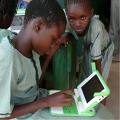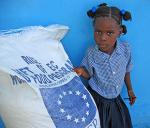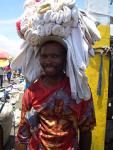Promoting Food Security in Haiti: Doing Good, Doing it Right
 When I see articles re-emerge about the clay biscuits the poorest of the poor in Haiti eat, as seems to happen every few years like clockwork, it frustrates me. We all know Haiti is a hungry country, but communities need solutions instead of pity, and partners who empower rather than provide handouts. Sometimes I read about well meaning groups in the United States that decide to box up food and send it to Haiti. Well intentioned but not smart - this is dependency and not development. Solutions exist and Kimberly Green of the Green Family Foundation writes about one in a blog she submitted to the Huffington Post. You can read it here but i have also copied it below.
When I see articles re-emerge about the clay biscuits the poorest of the poor in Haiti eat, as seems to happen every few years like clockwork, it frustrates me. We all know Haiti is a hungry country, but communities need solutions instead of pity, and partners who empower rather than provide handouts. Sometimes I read about well meaning groups in the United States that decide to box up food and send it to Haiti. Well intentioned but not smart - this is dependency and not development. Solutions exist and Kimberly Green of the Green Family Foundation writes about one in a blog she submitted to the Huffington Post. You can read it here but i have also copied it below.











